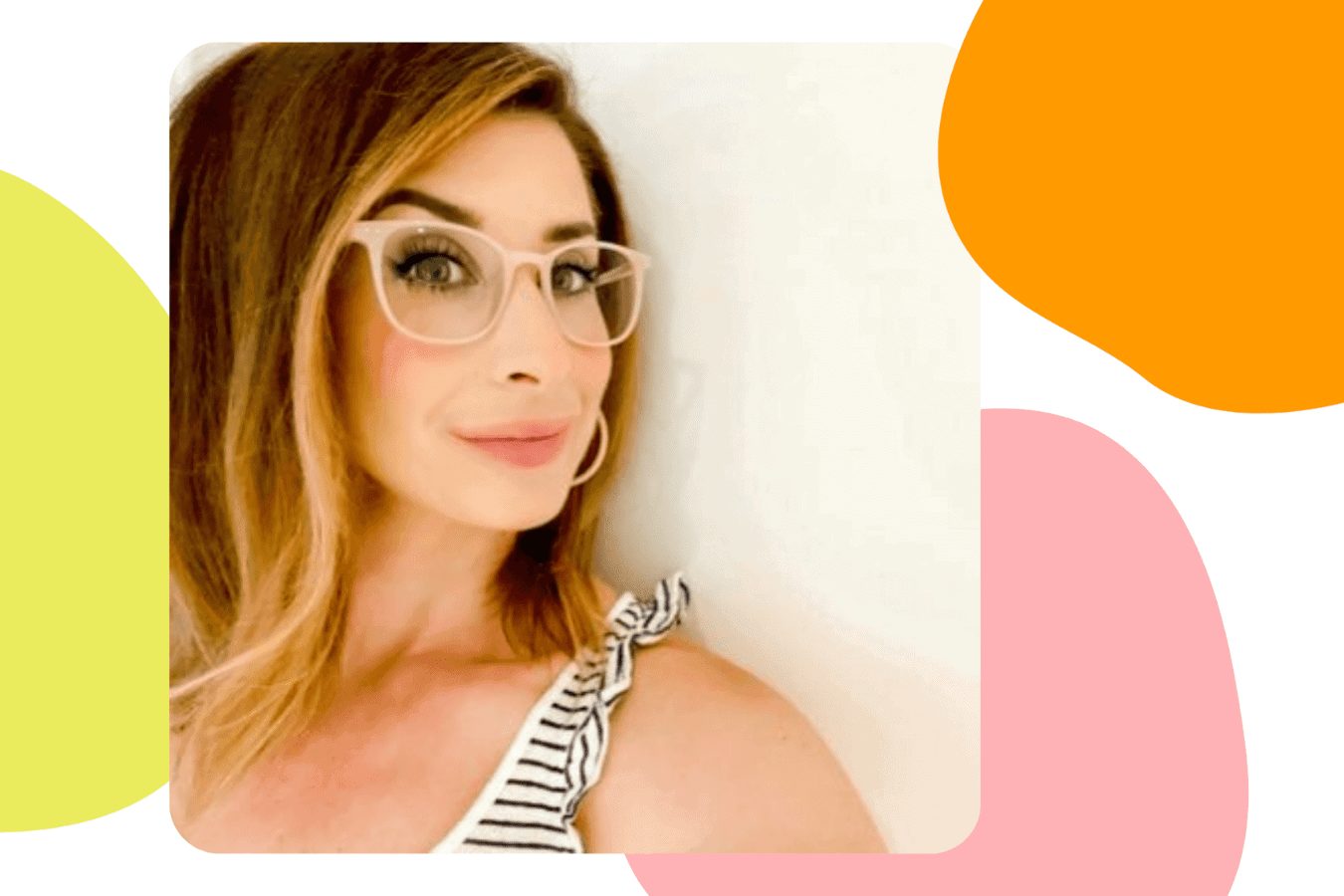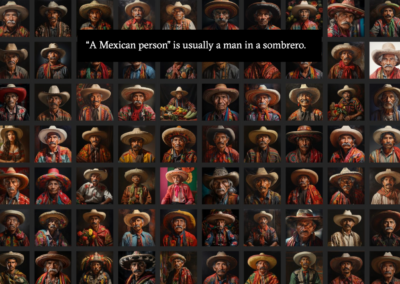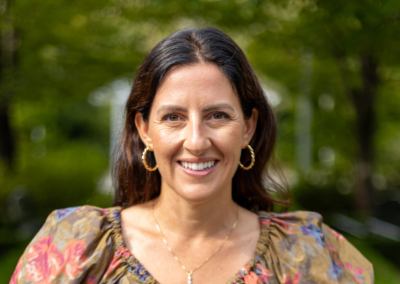Look around, in today’s marketing landscape, social IS advertising and creators are essentially their own ad agencies. But as technology innovates and new platforms arise, that only means content creation — and curation, will continue to evolve and expand like we’ve never seen before.
In this interview, we’ll hear from Zoe Scaman, Founder of Bodacious, a business and brand strategy studio on how creators are building audiences on new platforms, getting discovered, monetising their work; their marketing and business transitions in branded partnerships, and why brands need to trust the process if they want to reach their audiences.
____________________________________________________________________________________________
Q: In your talk from the APG event, Thinking Around Corners, you share that “Diversified business models are the catalyst for growth and creativity” — I love and agree with that. What are some of the larger changes you’ve seen brands or marketers make to diversify their business models?
Zoe: Over the last twelve months, diversification has become a necessity, as we saw so much of what we knew simply collapse in the face of Covid. Staring the end of their business in the face gave people a new appetite for experimentation and a drive to make it happen in a short time frame, whereas previously they’d been floating along, seeing dramatic innovation as a ‘one day’ push, as opposed to a ‘burning platform’ need.
We’ve seen huge shifts in the music industry, unable to leverage in-person events, which were their real money makers, they’ve instead turned to VR, gaming, Twitch, merchandise and in some cases, even cryptocurrencies, in an effort to expand the variety of ways in which they can monetise themselves.
The fashion industry has also been in the midst of seismic shifts, as the inability to continue on the conveyor belt of fashion weeks gave way to big conversations around the sustainability ramifications of seasonal collections, of huge city-based events and of the concept of trends. We saw myriad designers trialing virtual fashion, gaming events, switching it up entirely and getting into alcohol, food experiences and even sharing their own knitting patterns so people could make a sweater at home.
And of course, we’ve seen restaurants offer ‘make it at home’ food boxes, hairdressers creating online tutorials and home dye kits, fitness instructors embrace Zoom, bars trying to recreate happy hours with cocktail making classes and so much more.
Underpinning all of this scrappiness and innovation has been the rise of the Creator Economy, as individuals look for new ways to earn for themselves, either plugging gaps due to the loss of income or capitalising on new audiences who have found their way to their channels. It fast tracked a much needed conversation about how they can earn online if they’re below the threshold of ‘influencer’, can’t make cash from ads and aren’t the types to be sponsored by brands. All of which has led to the arrival of new fan-based platforms such as OnlyFans and Patreon, alongside new monetisation formats such as tipping, subscriptions, shout-out fees, tiered access and more, now available via Twitch, Facebook, Youtube, TikTok and Instagram.
The new behaviours and expectations that these creators are shaping via their fans will soon have huge ramifications for brands and marketers alike, as audiences start to ask, ‘Why can’t I get this from you?’
Q: What would you suggest for a starting entrepreneur or independent marketer to integrate into their own business model to thrive in today’s “new normal”?
Zoe: Embracing diversification works in this instance too. Rather than relying solely on one type of project and one type of earning potential, look to set up a few which bring in money in different ways to both maximise your time/charging rate (time is money, after all) and to ensure you’re not overly subscribed to one thing, in case the bottom falls out of it.
If you’re an independent marketer, you should look to mix up project rates, day rates, hourly rates, speaking fees, coaching, equity plays and of course, invest what you earn at the same time, to make it work harder for you.
A multi-pronged approach gives you a spread bet and more stability in the long term.
Q: What are some of the pros and cons in hiring an influencer, versus a creator who hones branded content, for a brand looking to deliver more personalized content?
Zoe: I see influencers and creators as one and the same, though we’ve given one a bad rap and the other a pedestal. Ultimately, they’re both creating their own content, cultivating an audience and commanding attention. Because we see Influencers as having ‘sold out’ to brands via Instagram, we now think they’re less trustworthy or valuable, but they simply followed the only monetisation option that was available to them at the time, now that these new ones are opening up, that’ll start to change as they figure out that they can cut those purse strings, if needed.
But I think the pros and cons are clear:
Pros:
- Access to a ready-made, highly engaged audience who genuinely want to see new content (branded or not) from the
- creator they follow and who trust their recommendations implicitly
- It gives brands access to an audience that they may struggle to create for themselves.
Cons:
- They have to trust the creators to craft the content in the way they see fit, without dictation. So that may mean swearing, lo-fi production value, your product being used in a way that isn’t the norm, not being ‘on brand’.
- If brands want to enter into these worlds, they’ve got to relinquish some level of control and trust the process.
- Just check out Ocean Spray’s ‘cranberry sauce’ video that they commissioned from a TikTok creator – do you think this would ever get signed off in a ‘normal’ agency/client situation, absolutely not, but it’s a work of art and the response was incredible.
Let go, just run with it.
Q: How do you believe independent creators (whether it be musicians, podcasters, influencers, etc) and brands can work more collaboratively to deliver curated content to audiences?
Zoe: Same as above. Give them a rough brief which isn’t too prescriptive and let their creativity come to the fore. Brands need to reframe what they’re asking for here and what they should expect, you’re not commissioning an ad, you’re looking for the best way to access and engage a particular audience and in that instance, the creator who built that following knows best.
Q: Today, Big Tech companies are organizing platforms to keep up with the impending “audio boom” brought on by the new kid on the block — invite-only audio chat app, Clubhouse. What kind of engagement do you believe the industry can expect to see from this newer wave of content platforms?
Zoe: The rise of these types of platforms is coming from a need we all have to move away from ‘big social’ (i.e. feeling overwhelmed, inundated and like we’re all screaming into the void) and towards once again finding moments of more intimate connection, serendipity, communities that share our interests, the nuanced niches.
Live audio, with no recording and the ability to be ‘in a room’ with your heroes, people you admire or just interesting peers feels special and like you’re really a part of something for the duration. The conversations are free flowing (albeit this can be frustrating if they’re not properly moderated) and unedited, meaning there’s a realness to them and an ‘anything could happen’ vibe.
Via Clubhouse, you can be in a room with Elon Musk, Lindsay Lohan or Oprah, listening in on their conversations as they happen. That’s fundamentally different to reading their crafted tweets after the fact, seeing their press releases or hearing them on podcasts.
For brands, this is once again about relinquishing control and designing for specific audiences, as opposed to mass, managed marketing.
- How could Nike set up an intimate chat with an athlete for a small audience, who were handpicked based on their creative contribution to the broader brand community?
- How could Airbnb leverage this to bring hosts together, as mini-forums based around pressing topics, helping them to connect and learn from each other?
- How could Glossier open up private Clubhouse events to gain real-time product feedback from a cohort who they trust with helping them progress on their innovation journeys?
It’s about creating conversations for your niches, lowering the drawbridges, removing some of the structure and (once again), trusting the process.
Q: What do you believe social publishing platforms could go beyond algorithms to maximize the audience’s experience, and deliver easy to find, new content?
Zoe: For me, I think the best social platform experience is when you ‘find your people’, based on your interests – when your weirdness matches with others.
In many ways, the introduction of the algorithm ‘interest graph’ (as opposed to the ‘social graph’) via TikTok met that need perfectly (WitchTok, AltTikTok, DracoTok) but as we evolve into wanting to couple content with more community features, social platforms need to go one step further.
What we need is better community discovery options, based on a variety of factors; such as our location, our language, our existing expressed interests, adjacent interests, what other members of our community are into and more. If we can bring the right communities to us, putting them right in front of our noses and inviting us in, that’s a game changer.
Reddit is potentially the best example of niche communities all under one umbrella and when you find the right subreddit, it can be magical, but even their discovery functionality is dreadful.
Whoever solves that first will help us all.
Q: In your Caffeine Conversations with David Sherry, The Business Models of the Creator Economy, you mention your original confusion when you were suggested that you’d best thrive as a strategist. What do you believe gave that recognition to your team?
Zoe: At the time, my confusion stemmed from not knowing what a strategist was or what they did, I’d never heard of them before and didn’t understand their role in agency life.
But looking back now, I think I’ve always been curious about everything, always asking the ‘but why?’ questions and trying to connect dots that others may not even see as being in the same zone, that’s what I believe they saw and why they pushed me in that direction. I was the annoying kid in the backseat, harassing their parents by asking question after question, until they finally figured out how to make use of me.
And I’m so thankful that they recognized it then, because I’m not sure I would have until much later, by which point, I may have left the industry altogether due to frustration and not feeling like I fitted.
Q: You recently shared the mass Google doc that’s going around on Twitter for those who are seeking mentors. Could you expand on your personal message that you would like to leave leaders on the importance of fostering mentorship?
Zoe: I think my message would be twofold.
Firstly there’s the moral imperative we should all have to pay it forward, to pass down what we’ve been lucky enough to learn, to be the kinds of leaders we wish we’d had, to be open, honest, generous and supportive.
As Maya Angelou once said – ‘When you learn, teach. When you get, give.’
And secondly, and more selfishly, don’t we all want to be a part of a dynamic, vibrant, creative, slightly chaotic industry? Don’t we want to keep pushing boundaries? To follow that upward trajectory? To invite new ideas, innovations and inspirations in?
I certainly do. The thought of becoming stale, predictable, run-of-the-mill and resting on my laurels scares the shit out of me, and it should for you too. But by inviting in younger minds who’ve had different experiences, who see the world through another lens and who have grown up exposed to cultures that we don’t understand, we get that injection of energy and enthusiasm that we so badly need.
We should be doing everything in our power to open the doors and to welcome them with warmth and open arms.
Zoe’s social: LinkedIn; Twitter; Instagram; Substack
Editor’s Socials – Dominque Dajer: LinkedIn, Twitter, Instagram



